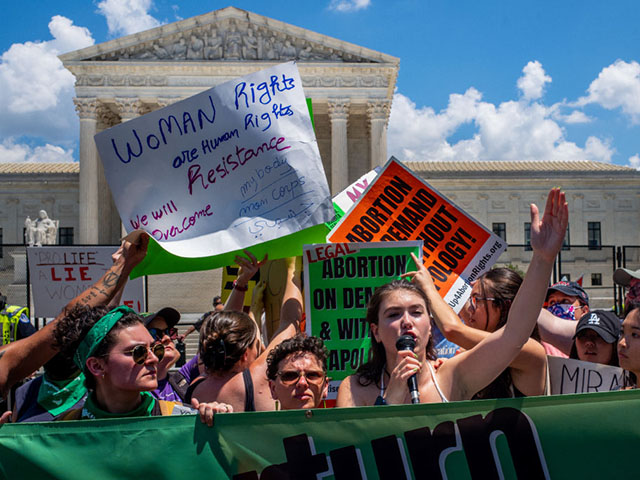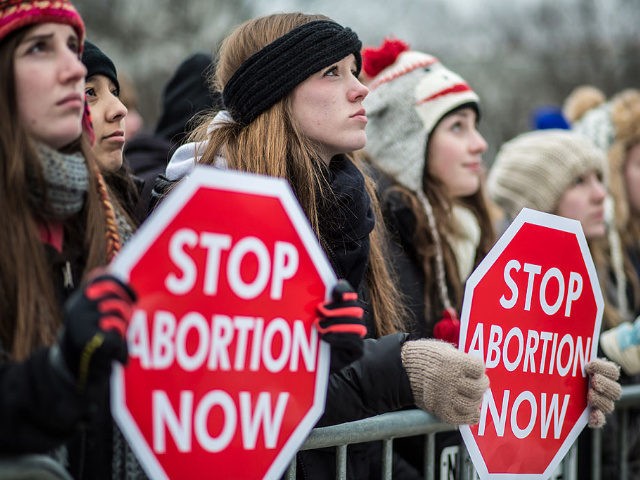The state of New York cannot use its 2019 “Boss Bill” law to force pro-life pregnancy resource centers to employ people who have had abortions, a federal appeals court ruled on Monday.
Evergreen Association Inc., a non-profit pro-life pregnancy resource center, brought a lawsuit against New York in 2020, challenging the constitutionality of the “Boss Bill,” which makes women who have an abortion a protected class under the state’s employment nondiscrimination laws. The lawsuit contended that Evergreen would be forced to hire employees who have had abortions and that the law would hinder the organization’s mission to encourage expectant mothers to choose life for their unborn babies. Evergreen further argued that the labor law violates its freedom of expressive association, freedom of speech, free exercise of religion, and is impermissibly vague.
The Court of Appeals for the Second Circuit agreed with a lower court’s dismissal of all claims except for Evergreen’s claim that the law violates its right to freedom of expressive association.
“We hold that Evergreen plausibly alleged that [the law] significantly burdens its right to freedom of expressive association and does not survive strict scrutiny. Accordingly, we reverse the district court’s dismissal of this aspect of the complaint. We otherwise affirm,” the decision issued by circuit judges Michael Park, William Nardini, and Steven Menashi reads.
“…We hold that the district court erred in concluding that [the law] does not significantly affect Evergreen’s expressive activity. Instead, the district court should have applied strict scrutiny,” the ruling continues. “And because the state has not at this stage demonstrated that [the law] is the least restrictive means to achieve a compelling governmental interest, we reverse the district court’s dismissal of Evergreen’s expressive association claim.”
The judges wrote that the right to expressive association “allows Evergreen to determine that its message with be effectively conveyed only by employees who sincerely share its views.”
“To decide whether someone holds certain views—and therefore would be a reliable advocate—Evergreen asks whether that person has engaged or will engage in conduct antithetical to those views,” the ruling reads. “Evergreen has plausibly alleged that, by foreclosing Evergreen’s ability to reject employees whose actions suggest that they believe the opposite of the message it is trying to convey, [the law] severely burdens Evergreen’s First Amendment right to freedom of expressive association.”

Abortion-rights activists attempt to block a disrupter as a woman speaks to a crowd in front of the U.S. Supreme Court on June 25, 2022, in Washington, DC. (Photo by Brandon Bell/Getty Images)
“…Evergreen’s beliefs about the morality of abortion are its defining values; forcing it to accept as members those who engage in or approve of [that] conduct would cause the group as it currently identifies itself to cease to exist,” the ruling continues.
The case will now be remanded to the U.S. District Court for the Northern District of New York for further proceedings consistent with the appellate court’s ruling.
Evergreen is represented by the Thomas More Society, a national not-for-profit law firm that says it is dedicated to restoring respect in law for life, family, religious liberty, and election integrity. In a statement released on Tuesday, Thomas More Society Special Counsel Timothy Belz said he trusts the court’s ruling “will discourage any state legislature from enacting legislation that would violate an organization’s First Amendment rights, including the right to work with those who share their values.”
“A counselor who espouses pro-life values, but did not regret having had an abortion or would opt to have an abortion in the future would undercut Evergreen’s message,” Belz said. “Evergreen’s constitutional right to expressive association allows it to determine that its pro-life views can be conveyed only by those who completely support and affirm the organization’s mission, in both word and deed.”
Belz added that no organization should be compelled to hire employees opposed to its core principles because it would “be a contradiction and expose the organization to accusations of hypocrisy.”
“That is true across the board for all types of groups. For example, a parochial school should not be forced to employ an atheist as a teacher, and an animal shelter should not have to hire an adoption facilitator who hates dogs,” he said.
Evergreen founder and CEO Christopher Slattery released a statement celebrating the victory.
“We are thrilled that a Federal Court in New York affirmed what we knew from the beginning, the need to shield pregnancy resource centers from unconstitutional laws that try to thwart their mission. We are grateful to the Thomas More Society for defending our free speech rights,” Slattery said.
The case is Slattery v. Hochul, No. 21-911 in the United States Court of Appeals for the Second Circuit.

COMMENTS
Please let us know if you're having issues with commenting.